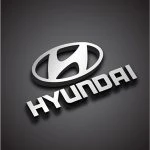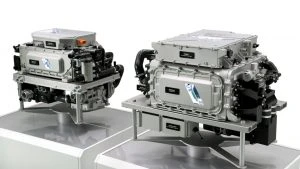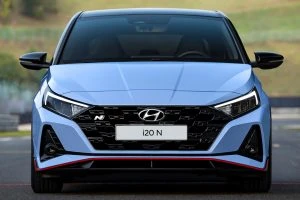Hyundai and Hydrogen

I’m showing my age a bit when I say that I can remember some of the earlier Hyundai cars – the Hyundai Pony and Hyundai Excel come to mind. Back in the 80s and early 90s, Hyundai cars were light, comfortable, and not really up to the same safety standards as the cars that were produced in other parts of the world. Nowadays, however, the story is completely different, and the South Korean automaker often tops crash safety tests with their vehicles, the vehicles are still comfortable, and the style and technology has won many awards. Hyundai has been always improving to the point where they are now a premium brand, very desirable, and leading the world on many fronts. Key new innovations from the Hyundai Motor Company (HMC) team are exciting and are part of Hyundai’s vision for building a cleaner, greener world that includes vehicles that no longer rely on fossil fuels.
Because of the past couple of years, where covid has taken the world’s centre stage, there has been a big shortage of semiconductors in the auto industry, to the point that some auto manufacturers have had to shut down. Semiconductors are used in the manufacture of electronic devices, including diodes, transistors, and integrated circuits. These devices have a wide application in anything electronic, including laptops, computers, appliances, and, of course, the modern automobile.
Like all vehicle manufacturers, HMC has been affected by the shortage and have had to temporarily suspend some of their factories. Despite the shortage, however, along with Toyota and Tesla, Hyundai is among a handful of automakers that actually increased their global sales despite the chip shortage.
However, Hyundai now plans to develop and build its own semiconductors so that they are not so reliant on chipmakers from other corners of the globe. Hyundai wants to make sure it has a steady supply of semiconductors for their projects on-and-into the future by making its own. It will be the parts and service arm for Hyundai, Kia and Genesis who would play a key role in the in-house development. Stockpiling the electronic chips would be important for Hyundai, so that when other global crisis occur, they will then be in a better position to weather the storm. Toyota and Tesla have already had stockpile contingency plans in place for some time, which has ensured that they fared well during covid.
Hyundai and Hydrogen
Hyundai are part of the Hydrogen Heavy Duty Vehicle Industry Group – comprised of hydrogen industry leaders Air Liquide, Hyundai, Nel Hydrogen, Nikola Corporation, Shell and Toyota. This Group has signed agreements with Tatsuno Corporation and Transfer Oil S.p.A. to industrialize globally-standard 70 MPa hydrogen heavy-duty vehicle high-flow (H70HF) fuelling hardware componentry. But, also, in Incheon, which is just west of Seoul, and in Ulsan, production plants will begin producing the hardware in the 2nd half of 2023 with an annual capacity of 100,000 hydrogen fuel cell systems.
South Korea’s influence on core Hydrogen components will see it as the world’s largest fuel cell production capacity, which will also help the HMC to diversify their business and tap into construction machinery and logistics equipment.
EVs might be the big talking point for some, but it is hydrogen that is the dark horse in the clean-green race. These two new fuel cell plants in Korea will accelerate the hydrogen economy and secure broader global market dominance. I reckon that Australia could be a hub for Hydrogen in the Pacific, don’t you think?
Hyundai’s wide-ranging hydrogen revolution accelerates with the showing of their 500 kW Vision FK sports car prototype and the e-Bogie autonomous commercial transport vehicles. HMG recently announced that it will launch next-generation hydrogen fuel-cell power units in 2023 that will double the power output, halve the cost, and reduce package size by 30%, when compared to current systems. Hyundai has a plan to offer “hydrogen for all” by 2040.
Hyundai’s Hydrogen Timeframe
In case you were not already aware, HMG is the parent of Hyundai, Kia and Genesis. By 2028, HMG says it will have applied fuel-cell systems to all of its heavy commercial vehicle models, including large trucks, significantly reducing transport-related CO2 emissions.

Hydrogen Fuel Cells
By 2030, Fuel-Cell Electric Vehicles (FCEV) will have achieved price parity with Battery Electric Vehicles (BEV), HMG says. And by 2040, HMG expects hydrogen to be available for everyone, for all vehicle types, and globally, triggering a lifestyle revolution.
Models for the Future
The Vision FK sports car is a 500 kW, hydrogen-powered high-performance prototype coupe that is capable of accelerating from 0-100 km/h in less than 4 seconds, while still offering a range of 600 km between top ups. The Vision FK’s fuel cell unit carries N Performance branding, suggesting that it would be a future Hyundai N model rather than a luxury-focused Genesis. HMG’s head of R&D, Albert Biermann, would not be drawn on when the Vision FK would go from prototype to production, but he did confirm that the next-generation Nexo fuel-cell SUV will launch “in the second half of 2023 followed by a Staria” The Staria is a people mover recently launched in Australia. “We are also working, of course, on fuel-cell cars for Kia and Genesis. That will take a little longer time. After 2025 you can expect further fuel cell applications.”
The e-Bogie commercial application is a fuel-cell-powered autonomous trailer that could revolutionise commercial transportation. Biermann also stated, “We are working full throttle on commercial [first] because that is the most effective way to avoid CO2. We are putting a lot of focus on fuel cells, not only for passenger cars but also for commercial vehicles.”
HMG’s Chairman, Euisun Chung, is even more emphatic about the significance of hydrogen fuel cell applications toward a sustainable future. “This may be the last train to a Hydrogen Society, and time is running out. Hydrogen is the most powerful and pragmatic solution to overcoming environmental challenges. Hydrogen mobility will accelerate human progress.”
He went on to say that Australia may have a role to play. “We know Australia is a country with vast and abundant renewable energy. We are exploring business opportunities in Australia with our partners. Our goal is to build a sustainable ecosystem for [a] global hydrogen society.”
He also said that, “We will not immediately phase out internal combustion engines (ICE) commercial vehicles, but we are not starting any new developments of ICE. No new models and no new platforms. Everything will go forward with BEVs and FCEVs.”
Interestingly, according to Hyundai’s head of fuel cell development, Mr Saehoon Kim, FCEV technology has one huge advantage over BEVs: “The main problem with [a] BEV is the scalability of batteries. For a small EV it’s okay, but for commercial large scale [operation] the question immediately is …. How are we going to stack all these batteries with the heavy weight, and who is going to be happy with the low range? So, in this case fuel cell fits perfectly.”
Hyundai’s heavy commercial fuel cell program is already well advanced. In mid-2020, 45 Hyundai Xcient fuel cell trucks began commercial operation in Switzerland. Biermann stated that the trucks covered 210,000 kilometres per month and have saved 130 tonnes of CO2 emissions every month in operation.
The key to Hyundai’s commercial strategy is its third-generation fuel-cell system, which is in the final stages of development. Hyundai expects to launch two units in 2023, one producing 100 kW for passenger vehicles and SUVs (including the next Nexo and Staria FCEVs), and a 200 kW unit for commercial applications. It has been said that by using two fuel-cell systems for trucks Hyundai can provide around 350 kW, which is equivalent to the power of current diesel engines used in trucking logistics.
This is all very exciting news and one that I have welcomed hearing. I’m a fan of the new hydrogen fuel-celled vehicle technology moving forward. This is Hyundai at its best, and we can only continue to watch this space.
Current Hyundai achievements:
The current ICE Hyundai i20 N has been crowned champion of Top Gear’s Speed Week. The 26 fastest cars in the world participated in Top Gear’s Speed Week 2021. It was the Hyundai· i20 N’s sharp handling and everyday usability that stood out to those in the Top Gear team.

Hyundai i20N